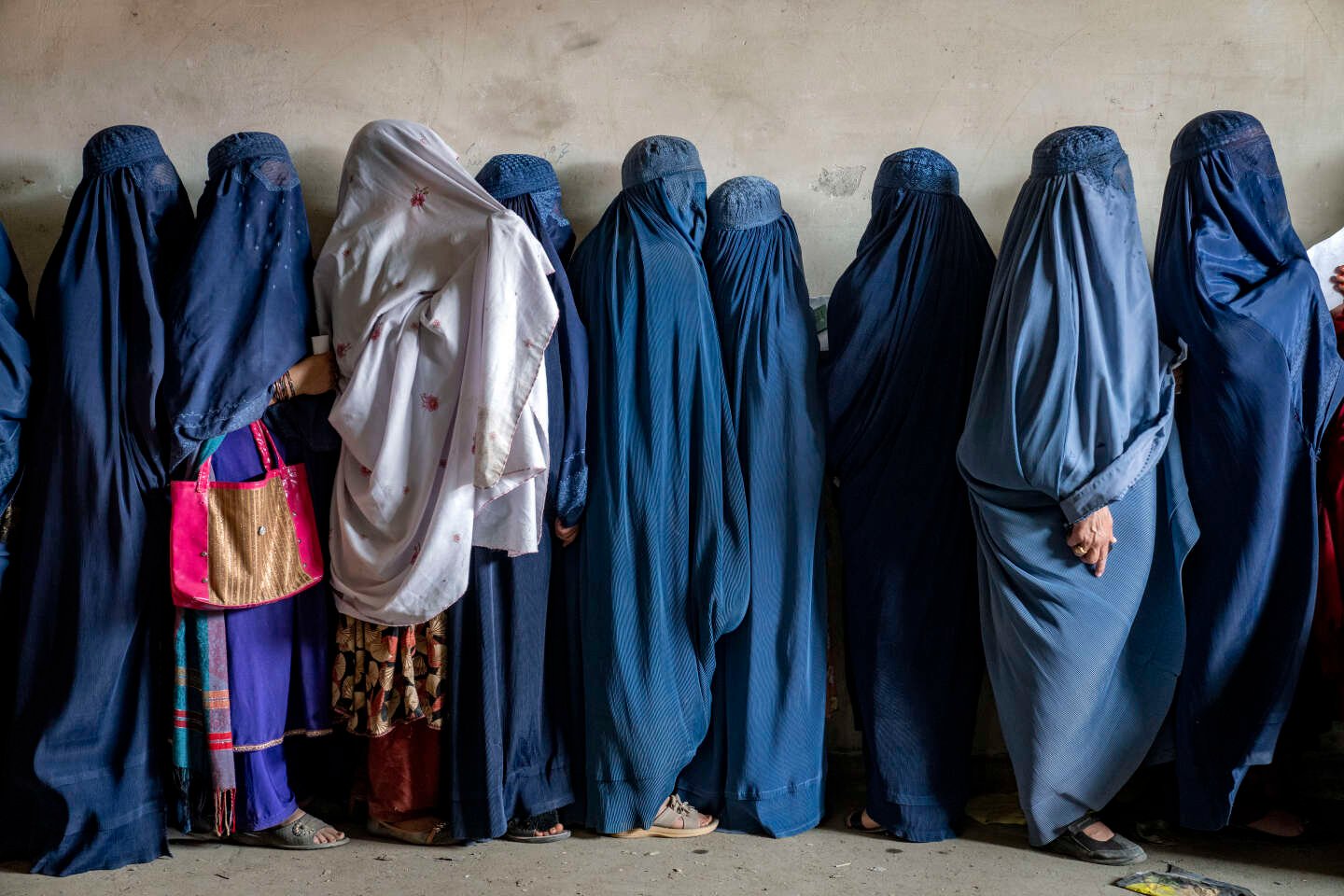Op-Ed
Aline Jalliet
In an op-ed for ‘Le Monde,’ Aline Jalliet, a vocal coach and author, discusses the law enacted by the Taliban on August 22 that bans women from speaking in public spaces.
Published today at 5:00 am (Paris) 3 min read Lire en français
Subscribers only
Why, after having already covered them from head to toe, prevented them from working, learning, playing music, walking in parks, looking men in the eye, or traveling alone, are they going as far as to deprive women of their voice? “The voice is like the sign of life,” said Afghan journalist Hamina Adam on France Culture radio channel on August 27. “It’s just another way of killing us even more. It’s a way of destroying what little self-esteem women have left.”
Since the Taliban returned to power in Afghanistan in August 2021, women’s rights have been reduced to nothing. Thousands of women have been barred from the jobs they once held, and thousands of young girls have been excluded from school or university. Forced to stay at home, isolated from each other, they are increasingly living as prisoners.
#MyVoiceIsNotForbidden
The new law passed on August 22 further reinforces these restrictions, outright banning women’s voices from public spaces. Women are forbidden to sing, recite poems, read aloud in public, or even just talk. When leaving their homes, women are now required to cover their mouths with masks and ensure that their voices are not heard.
“The mere sound of a woman’s voice outside the home is apparently considered a moral violation,” said Roza Otunbayeva, head of the UN assistance mission in Afghanistan, on TV5 Monde on August 26. In a country where women must avoid the gaze of men, their voice was their last mark of individual identity, which the Taliban reduced to a seductive lure. If the voice demands the attention of the ear, it also attracts the eye like a magnet. Requiring women to remain silent in public spaces makes them transparent, blending into the background; it’s easy to forget they’re there.
Let’s take a look at Iran where, since the 1979 revolution, women have been forbidden to sing solo on stage in front of men or mixed audiences. Ayat Najafi’s film No Land’s Song (2014) documents the long struggle of the director’s sister, Iranian composer Sara Najafi, to organize a women’s concert in Tehran in 2013, with the support of French singers Jeanne Cherhal and Elise Caron. As Najafi says in the movie, making women’s voices heard in a country where they are disappearing is “the most revolutionary act you can perform.”
In recent days, dozens of Afghan women have posted videos of themselves singing, with their faces uncovered or veiled in black, looking directly at the camera in defiance of the Taliban’s latest crackdown. The #MyVoiceIsNotForbidden movement has become a political manifesto.
You have 50.47% of this article left to read. The rest is for subscribers only.
Vous pouvez lire Le Monde sur un seul appareil à la fois
Ce message s’affichera sur l’autre appareil.
-
Parce qu’une autre personne (ou vous) est en train de lire Le Monde avec ce compte sur un autre appareil.
Vous ne pouvez lire Le Monde que sur un seul appareil à la fois (ordinateur, téléphone ou tablette).
-
Comment ne plus voir ce message ?
En cliquant sur « » et en vous assurant que vous êtes la seule personne à consulter Le Monde avec ce compte.
-
Que se passera-t-il si vous continuez à lire ici ?
Ce message s’affichera sur l’autre appareil. Ce dernier restera connecté avec ce compte.
-
Y a-t-il d’autres limites ?
Non. Vous pouvez vous connecter avec votre compte sur autant d’appareils que vous le souhaitez, mais en les utilisant à des moments différents.
-
Vous ignorez qui est l’autre personne ?
Nous vous conseillons de modifier votre mot de passe.
Lecture restreinte
Votre abonnement n’autorise pas la lecture de cet article
Pour plus d’informations, merci de contacter notre service commercial.
